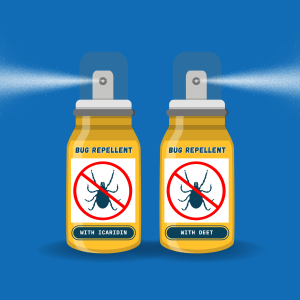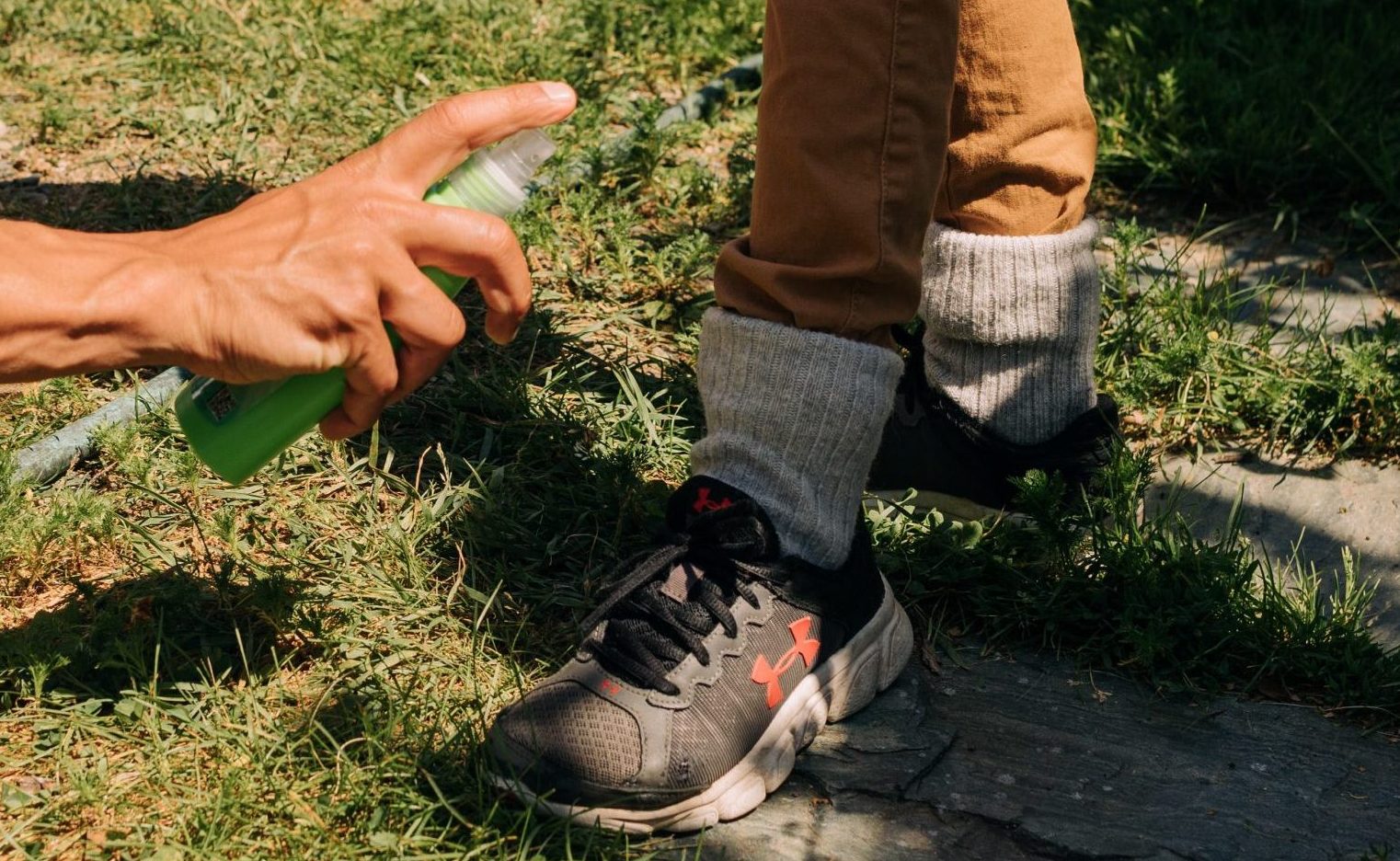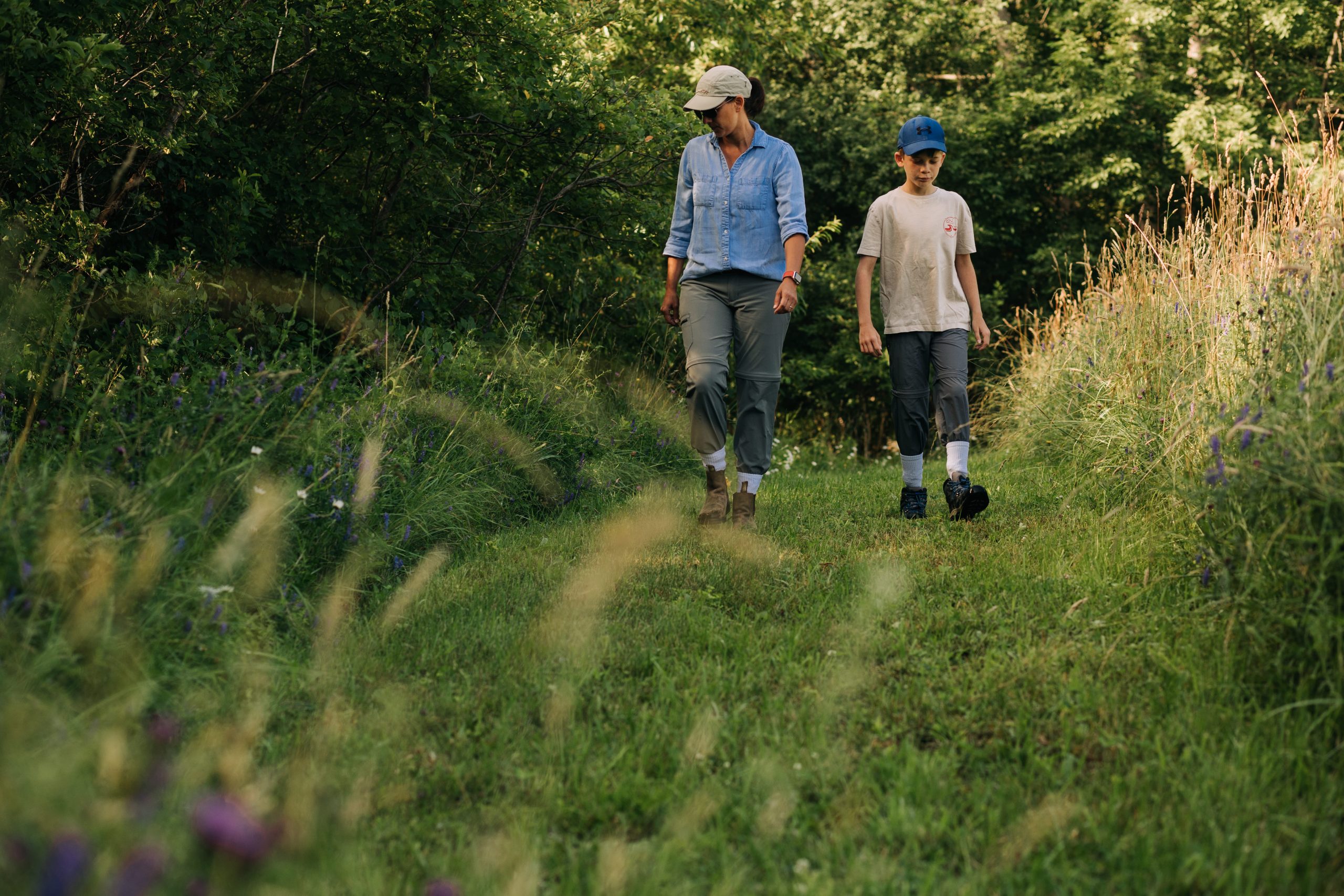
Before going outdoors
Identify items of clothing which will minimise tick exposure
If you have already thought about what you could wear, you won’t need to worry about it at the last minute.
It is very likely that you already own the clothing you need to minimise tick exposure when outdoors – long sleeved tops, pants/leggings, socks, hat and closed shoes.
In hot weather, light colours have the added benefit of being cooler as well as making ticks easier to spot, and looser clothes may be more comfortable.
If you choose not to wear long layers, socks and closed shoes, bear in mind that the use of other preventive measures such as bug repellent and tick checks will be even more important.
If you spend a lot of time outdoors, you may wish to investigate and invest in permethrin-treated clothing.

Know which bug repellents are appropriate for you and your family.
There are two ingredients for tick protection recommended and authorised in Canada – DEET and Icaridin. These products are also effective against mosquitoes, although the duration of efficacy may not be the same for both. Keep in mind that other mosquito repellents may not be effective against ticks. Always follow the label for instructions on how to use bug repellent. Click here to find specific information about how to use bug repellents which are effective against ticks and readily available in Canada.
To increase the likelihood of remembering to apply bug repellent, it can be helpful to leave bottles in strategic places, such as by the door and in the car.
The efficacy and safety profiles (personal and environmental) of DEET and Icaridin have been demonstrated by Health Canada.

If you do not use any form of bug repellent, it is advisable to take extra time to perform thorough tick checks of your clothing, gear, and body when returning home.
Check the predicted maximum temperature for the day
In general, ticks are active when the temperature is above 4°C (39°F), therefore depending on where you live in Canada, you may need to think about tick prevention from April to November or even year-round. During the shoulder seasons, it is a good idea to check the weather forecast at the beginning of the day so you can be prepared before enjoying the outdoors.

Cover photo by: CLyDRN


